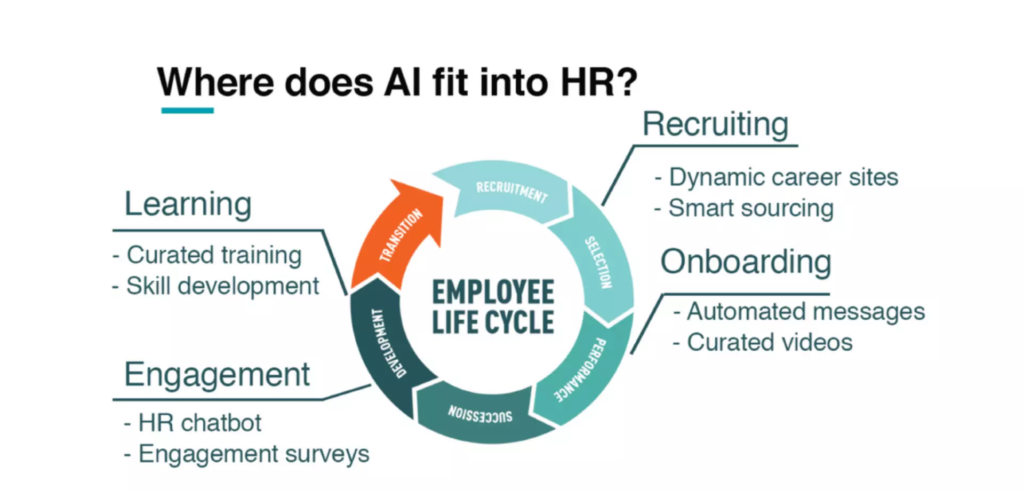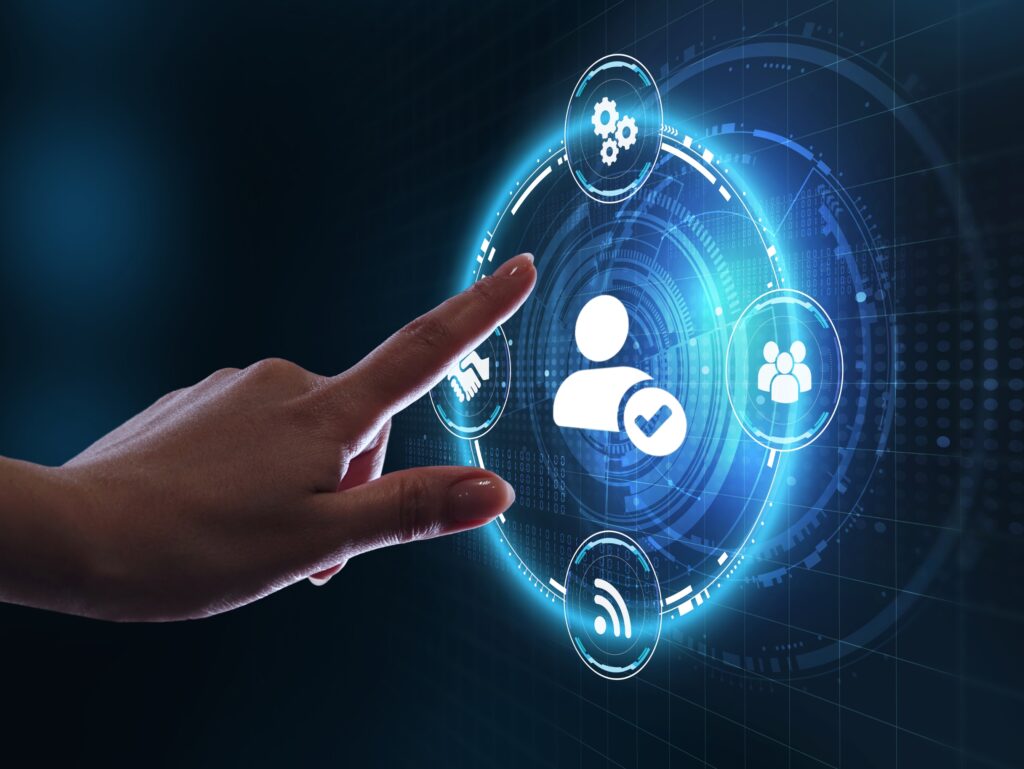The future of Human Resources (HR) is undergoing a profound transformation thanks to Artificial Intelligence (AI). In the quest for a more efficient, data-driven, and personalized HR landscape, AI is set to play a pivotal role.
Automation and efficiency
AI’s role in HR goes beyond just resume screening; it extends to automating routine tasks, handling employee queries, and even facilitating salary communication. This automation enhances operational efficiency, freeing up HR professionals for strategic endeavors. Imagine HR departments freed from the time-consuming drudgery of manual resume screening and mundane queries. AI takes on these repetitive tasks, allowing HR professionals to allocate their precious time and skills to more strategic and human-centric aspects of their roles.
Data-driven decision-making
AI’s capacity to analyze vast amounts of HR data empowers HR practices with data-driven decision-making. From hiring the right talent to employee development and performance evaluations, AI provides invaluable insights that shape HR decisions. Instead of relying on gut feelings and intuition, HR professionals can now make informed choices backed by data. The result is a more precise and effective approach to everything from talent acquisition to performance management.
Personalization
Generative AI is leading the charge in HR personalization. By tailoring candidate recommendations and job matches based on individual qualifications and preferences, it ensures a better fit between employees and their roles. The days of generic job recommendations are fading. AI can delve into the unique strengths and preferences of each candidate, matching them to roles that not only align with their skills but also resonate with their aspirations.
Enhanced employee experience
AI streamlines HR processes, resulting in faster responses to employee inquiries and more personalized development plans. This enhanced employee experience promotes a positive work environment, boosting satisfaction and retention. Improved HR efficiency translates to a more responsive HR department. Employees no longer have to wait endlessly for answers to their queries or face frustrating bureaucratic hurdles. The personalization aspect ensures that employee development plans are tailored to individual goals, fostering a sense of being truly valued within the organization.
Growth in AI implementation
The increasing adoption of AI in HR is a testament to its effectiveness. The HR AI market is poised for growth, indicating a shift in how organizations manage and optimize their HR functions. This growth is indicative of a broader trend. Organizations are recognizing that AI is not a mere trend but a transformative tool. As more organizations embrace AI in HR, it’s evident that it’s not just a passing fad but a fundamental shift in how HR is managed and optimized.
Challenges and opportunities
AI in HR comes with its set of challenges and opportunities. HR professionals must navigate these dynamics:
- Overcoming limitations: AI, while powerful, isn’t infallible. HR professionals should ensure it doesn’t reject qualified candidates or perpetuate biases. Combining human judgment with AI is crucial. As AI evolves, it’s vital to continually refine its capabilities to ensure it recognizes and doesn’t overlook exceptional talent. AI should be an ally in promoting diversity and inclusion, not an obstacle.
- Data security: With AI managing sensitive HR data, data security is paramount. HR departments must prioritize cybersecurity to safeguard employee information. The management of vast amounts of employee data demands a robust cybersecurity framework. Protecting personal and sensitive information is a non-negotiable responsibility, and it’s one that organizations must take seriously.
- Choosing the right tools: Selecting AI tools that complement existing systems and enhance efficiency is key. The focus should be on seamless integration. When adopting AI, organizations must carefully choose tools that align with their existing HR systems. Integration should be seamless, not disruptive. It’s not about replacing what works but enhancing it with AI’s capabilities.
- Striking a balance: AI should complement human expertise, not replace it. Striking a balance between technology and the human touch is essential for achieving the best results. The true power of AI in HR comes from its partnership with human professionals. It should not be viewed as a replacement but as a powerful ally that augments HR’s capabilities.

The integration of AI into HR signifies a promising evolution in workforce management. The current landscape is characterized by increased automation, data-driven decision-making, personalization, and improved employee experiences. These changes will continue to redefine HR processes and offer new horizons for HR professionals to explore.
As AI in HR unfolds, HR leaders and professionals should embrace this transformation, overcome its challenges, and harness its opportunities. The future of HR isn’t a world devoid of human interaction, but a harmonious fusion of technology and human expertise, making HR more efficient, data-driven, and employee-centric.
In the coming years, we can look forward to a future where AI seamlessly assists HR professionals in optimizing their workforce, unlocking new potentials, and ensuring a brighter future for both organizations and their employees. The journey has just begun, and the future is bright for HR in the age of AI.
We’re excited to connect and discuss potential collaborations over a coffee meeting. Let’s exchange ideas and explore how our organization and associates can bring value to your business. Please feel free to get in touch with us – we’re just a message away!

